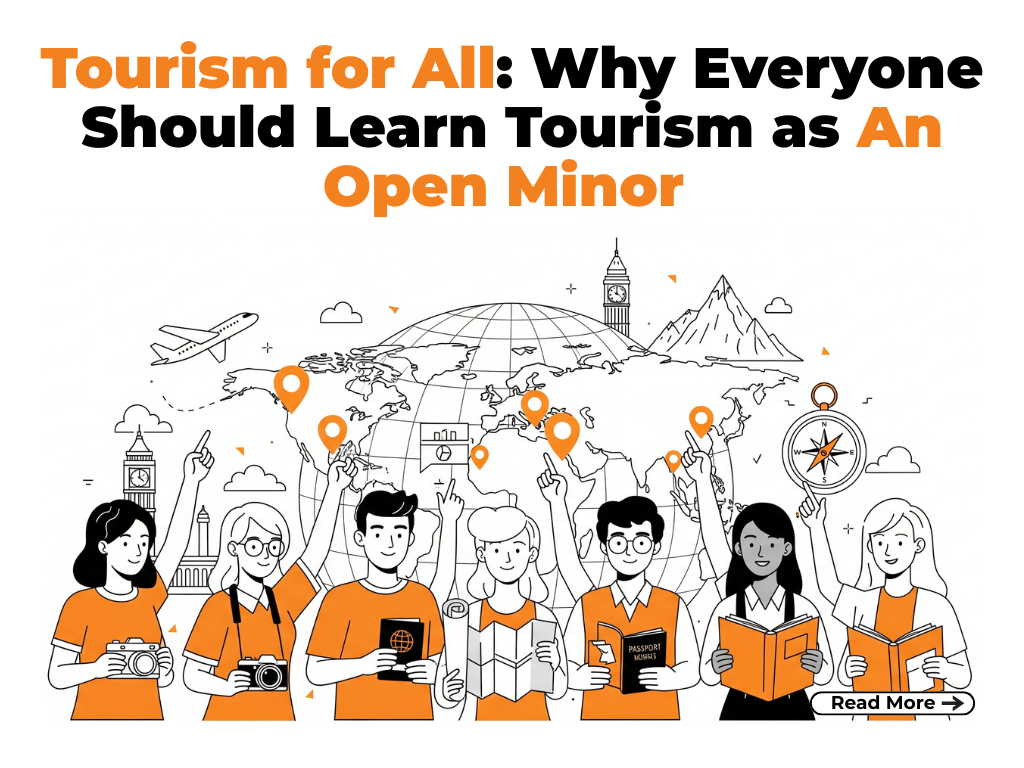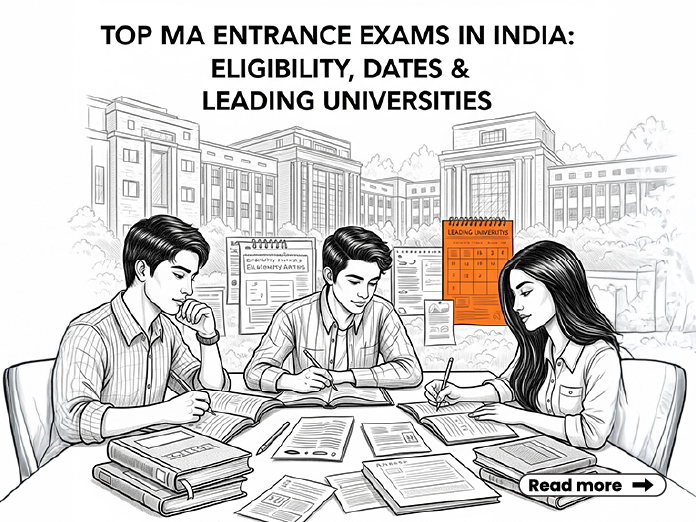The benefits of studying tourism go far beyond travel—they build cultural intelligence, practical skills, and real-world awareness applicable across industries. Tourism is substantially more than organizing holidays or automatically putting together landmark lists. In simpler terms, it is a constantly changing and multidisciplinary field of study that comprises not only the study of people’s travel choices but also the rationales behind them, the social, environmental, and economic consequences of those choices, and the complex system that enables global mobility. Therefore, regardless of their chosen discipline, students can gain unparalleled possibilities for personal development, career potential, and the development of a sensitive approach to the modern world by pursuing an open minor in tourism. The following discourse explains why tourism is a radical teaching approach for students with diverse educational backgrounds. Whether you’re studying economics, architecture, or education, the benefits of studying tourism and hospitality management include improved problem-solving, cultural empathy, and global insight—traits highly valued in every professional domain.
Becoming a Smarter Traveler
Being a student of tourism ensures that you evolve into a more conscious and responsible traveler. You will discover fundamentals like Leave No Trace (Leave No Trace) that assist travelers in minimizing the environmental harm they cause while they are visiting. Your travel approach—the quality of your experiences—will matter more to you than a list of the destinations you visited. If you have this knowledge, you will be a traveler whose footprint is beneficent rather than exploitative, making your trip gracious and beneficial to host communities.
A Career Edge Across Fields
An education in tourism will assist you with your general skill set and employment requirements; it is not just meant to help you become a travel agent. You will gain interpersonal skills, customer-oriented thinking, and innovative problem-solving techniques—all of which are highly sought after in the modern workplace. Tasks like organizing holidays or organizing travel arrangements, for example, are indicative of the challenges you would face in the workplace and could qualify you for a career in analytics, marketing, or event planning. You must excel in your field to compete for tourism potential, which is expected to be in demand.
Interdisciplinary Learning: A Gateway to Knowledge
The concept of tourism is multidisciplinary and connects many different fields. Studying tourism includes examining economics by exploring its contribution to the GDP of countries such as Thailand and the Maldives. With ideas like carrying capacity, as demonstrated by the Venetian fight to limit cruise lines to preserve their ecology, you broaden the scope of environmental research. Sociology comes into play when considering staged authenticity, thereby raising questions about the value of culture and identity. This interdisciplinary approach to education broadens your perspective and develops your ability to think holistically.
Fostering Global Citizenship and Empathy
Primarily, tourism addresses people, both the tourists and the community that is hosting tourists. It adheres to the Indian hospitality idea of Atithi Devo Bhava, which states that the guest is God (Incredible India). You become more socially conscious and tolerant as a result of your interactions with people from different cultures, beliefs, and traditions through tourist education. Through introspection and cross-cultural experiences, you develop emotional intelligence and become a socially conscious global citizen with the empathy and skills necessary to prosper in a diverse environment.
Sustainable Thinking and Ethical Awareness
Tourism is all about people, notably both tourists and the people that reside in that place. It symbolizes the principle of Atithi Devo Bhava (the guest is God), which is an important part of Indian hospitality (Incredible India). Tourism education that exposes students to various cultures, customs, and views encourages social awareness and tolerance. Reflection and exposure to different cultures improve interpersonal skills, making someone a socially aware global citizen who can thrive in a diverse setting with empathy.
Personal Growth and Life Skills
Traveling encourages you to venture beyond your comfort zone, thereby enhancing your personal growth. Tourism education contributes to these goals by leading students to contemplate diverse affiliations, perpetual improvement, and flexibility. You become more aware of diverse cultures, which is a pleasant and effective trait in a world full of people.
Relevance to Every Major
The pluralistic character of tourism accounts for its relevance across various academic disciplines. Individuals pursuing studies in computer science will possess the capability to develop travel applications or implement AI-driven customer service solutions. Architecture students have the capacity to design sustainable resorts and create culturally sensitive environments. For education majors, study tours can be viewed as dynamic learning environments, while discussions about medical tourism or wellness retreats are relevant for students in the health sciences. Travel narratives lend themselves to analysis within literature courses, thereby enhancing students’ comprehension of storytelling intricacies. This principle holds true across various contexts, as tourism enhances your primary field of academic pursuit.
Promoting Civic Responsibility
Tourism education enables companies to inform local people in destinations such as India, where civic sense is not a top priority. Students are being taught how their activities affect communities and the environment through campaigns such as the Travel For LiFE, Leave No Trace, and Atithi Devo Bhav campaigns. With the knowledge of these principles, you will be making positive changes that will generate a culture of being respectful and responsible.
Aligning with Future-Focused Education
Tourism education trains you for a dynamic environment. Whether you are a business student evaluating tourism markets or a literary major studying travel writing, tourism enhances your ability to communicate effectively on an international scale. It fosters empathy by illustrating the humanization of foreign cultures, dismantling prejudices, and challenging ethnocentric perspectives. Immersion and discussion impart knowledge about the world and beyond, preparing you to thrive in an environment where adaptation and empathy prevail. Ultimately, the advantages of hospitality and tourism management lie in its ability to prepare learners for meaningful work that combines creativity, service, and sustainability—making it a truly transformative educational choice.
Conclusion: A Minor with Major Impact
Travel is more than a passing interest; it’s a way of life that emphasizes self-improvement, professional growth, and global perspective. In addition to making you discipline-agnostic, it leaves you equipped for the workforce and the global stage. By choosing tourism as your open minor, you may immerse yourself in the world’s variety, build connections among its people, and contribute to its sustainability. Today, we value graduates who are imaginative, sensitive, and dynamic, and the tourism industry is a beneficial example of an industry that consistently turns out people who are creative, compassionate, and adaptable. Therefore, would you be open to letting a minor in tourism have a significant impact on you?




![Career Paths After B.Sc. Information Technology [Lateral Entry] Career Paths after B.Sc. Information Technology [Lateral Entry]](https://www.lpu.in/blog/wp-content/uploads/2026/01/Career-Paths-after-B.Sc_.-Information-Technology-Lateral-Entry-218x150.png)

![Why B.Tech. (Chemical Engineering) [Lateral Entry] at LPU Stands Out? Why B.Tech. (Chemical Engineering) [Lateral Entry] at LPU Stands Out](https://www.lpu.in/blog/wp-content/uploads/2025/11/Why-B.Tech_.-Chemical-Engineering-Lateral-Entry-at-LPU-Stands-Out-100x70.png)







